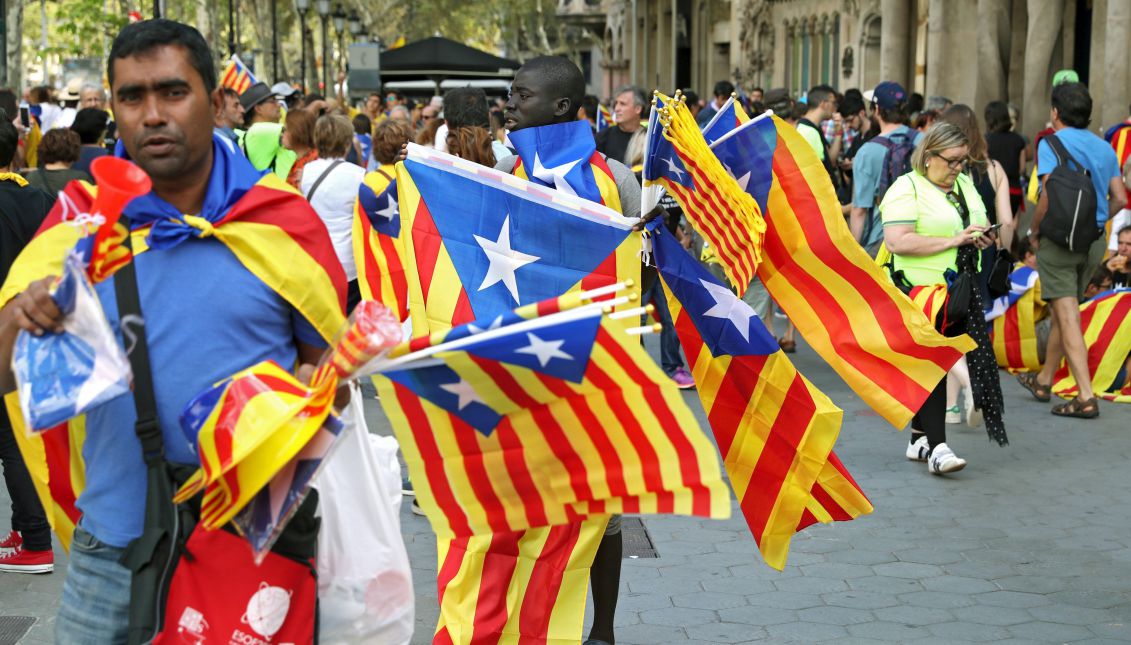
Catalonia marks National Day amid tensions ahead of divisive referendum
Residents, politicians and famous figures from Spain's prosperous northeastern region of Catalonia came out to celebrate the region's national holiday on Monday, an annual ceremony steeped in historical tradition but one that has also taken on a political edge in modern times.
The National Day of Catalonia, commonly known simply as "Diada" from the Catalan "Diada Nacional de Catalunya," marks the fall of Barcelona during the Spanish Succession war in 1714.
One of the cornerstone ceremonies in the festivities is to pay homage to Rafael Casanova, a former mayor and commander-in-chief of Barcelona's forces, known as La Coronela, during the Bourbon-led siege of the city between 1713-14.
Nowadays, regional leaders, politicians, and civilians dressed in period clothing gather to lay flowers at the monument to Rafael Casanova in central Barcelona.
Regional Catalonian President, Carles Puigdemont _ who has recently become a controversial figure in Spanish politics for his role in pushing for an independence referendum deemed unconstitutional by the Spanish government _ was one of many figures, including Barcelona's Mayor Ada Colau, to pay their respects at the Casanova monument.
Representatives from the city's two largest soccer teams, Barcelona FC and Espanyol, also made an appearance at the ceremony.
The festivities were a perfect excuse for one of Catalonia's most unique traditions; the castell, or human tower, which has been declared an intangible piece of heritage by the United Nations cultural body, UNESCO.
CONTENIDO RELACIONADO
However, just days after the Catalonian regional government wrote the Oct. 1 independence referendum into local law _ much to the ire of Spain's central government _ this year's celebrations were not free of a political agenda.
Representatives from many of Spain's most powerful political parties used the opportunity to warn local Catalonian leaders to reverse the measures and to abide by the rulings of the Constitutional Court, which has already dismissed such a separatist bid as illegal.
Later in the afternoon, thousands of people gathered for a march supporting independence through the streets of Barcelona.
Many demonstrators waved the Estelada, an unofficial Catalonian flag characterized by its red and yellow stripes and a white star set to a blue triangular backdrop, which has adopted by the independence movement.
The government in Madrid has warned that any attempt to stage a separatist vote would be met with legal consequences _ a message that has been reiterated by officials across Europe and in the European Union.










DEJE UN COMENTARIO: